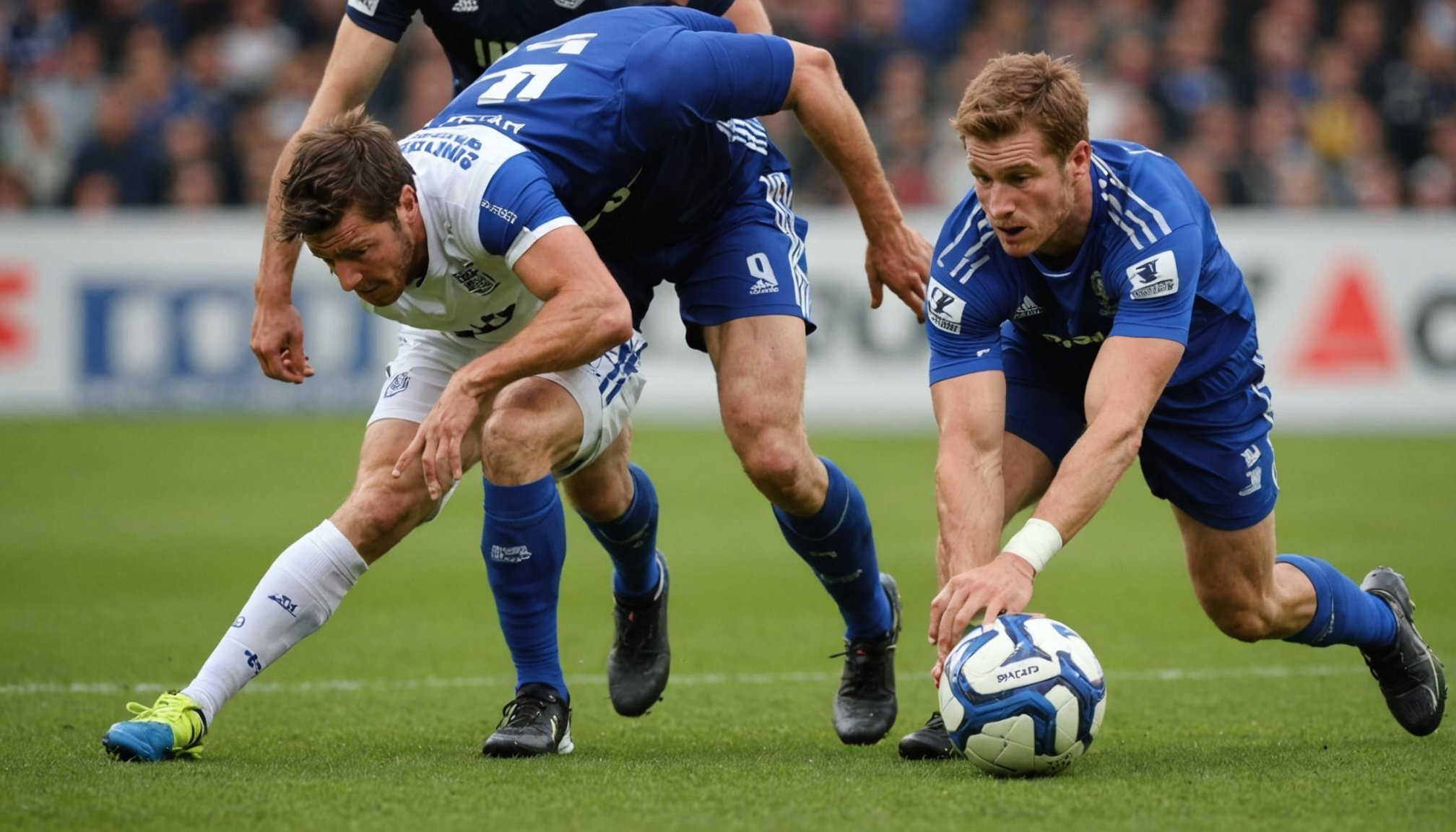Injuries are an unfortunate reality in the world of sports, affecting athletes across all disciplines. From weekend players to elite Olympians, injuries can have a profound impact on an athlete’s career longevity and overall quality of life. As the interest in sports medicine and athlete health grows, understanding the long-term implications of injuries becomes more important for both current and aspiring athletes. This article explores how injuries influence the careers of athletes in the UK, focusing on the types of injuries commonly reported, the psychological effects, and the role of medical interventions in recovery.
Common Injuries Among Athletes
Athletes often sustain a variety of injuries, with some being more prevalent than others. Knee injuries, for example, are particularly common in sports that involve running, jumping, or sudden changes of direction, such as football, basketball, and hockey. Ankle sprains are also frequently reported, especially in sports where players are required to make quick lateral movements. According to studies available on PubMed, these injuries not only cause immediate pain but can lead to chronic issues if not managed correctly.
Also read : How can UK sports journalists maintain integrity while covering high-profile events?
The incidence of injuries varies by sport. Contact sports, where players engage physically with one another, tend to see higher rates of injuries. In contrast, non-contact sports might have fewer injuries, but they are not immune. For instance, runners often report injuries such as shin splints or stress fractures. These injuries can lead to missed training sessions, which can significantly affect an athlete’s performance and development.
The impact of a sports injury extends beyond the physical realm. Professional athletes may find their career cut short due to severe injuries, while others may struggle with lingering pain that affects their performance. The psychological toll can be just as damaging, leading to issues such as anxiety and depression. Understanding the types of injuries that athletes face is crucial for developing effective prevention and rehabilitation strategies. This knowledge not only aids players in managing their health but also helps coaches and trainers to foster safer training environments.
Also read : Essential Elements for Launching a Thriving Youth Tennis Training Program in the UK
The Psychological Impact of Injuries
Injuries can have a serious psychological impact on athletes. The uncertainty surrounding recovery and the potential for re-injury can lead to increased stress and anxiety. Many athletes experience a sense of loss when sidelined, as their sport often defines their identity. This emotional distress can hinder recovery and affect performance when they return to competition.
Research indicates that athletes who can maintain a positive mindset during recovery tend to have better outcomes. Engaging in mental health support, such as counseling or group therapy, can help mitigate the psychological effects of injury. Programs aimed at mental resilience can be particularly beneficial for elite athletes. Olympians often face the pressure of high expectations, making the psychological repercussions of injury even more pronounced.
The importance of a support system cannot be understated. Coaches, teammates, and family can play a significant role in an athlete’s recovery process. Open communication about feelings and fears can alleviate some of the mental burdens that injuries impose. This holistic approach to recovery, which combines physical rehabilitation with psychological support, is essential for a successful return to sport. Athletes should prioritize their mental health just as they do their physical well-being to ensure a balanced recovery.
The Role of Sports Medicine in Athlete Recovery
Sports medicine has advanced significantly, offering athletes better resources for recovery. Medical professionals specializing in sports injuries play a critical role in diagnosis and treatment. Access to comprehensive care, including physiotherapy and rehabilitation programs, can greatly influence an athlete’s recovery timeline.
In the UK, the National Health Service (NHS) provides various services for injured athletes, but many turn to private medical options for quicker access to specialists. There is a growing emphasis on injury prevention and management, with many sports organizations investing in sports science and medical research. Studies published on platforms like Google Scholar highlight the effectiveness of tailored rehabilitation programs that focus on specific injuries, enhancing recovery outcomes.
The integration of technology in sports medicine has also revolutionized recovery practices. Tools such as motion capture technology and biomechanical analysis allow medical professionals to create targeted treatment plans. For example, an athlete recovering from a knee injury may undergo tailored exercises that strengthen surrounding muscles and improve flexibility, reducing the risk of future injuries.
Ultimately, the role of sports medicine extends beyond treatment; it encompasses education on injury prevention and long-term health strategies. Athletes equipped with knowledge about their bodies and recovery processes are better prepared to handle the demands of their sport and maintain their careers.
Long-Term Career Consequences of Injuries
The consequences of injuries can extend far beyond the immediate effects, impacting an athlete’s long-term career. Many athletes face the reality of not returning to their pre-injury performance levels. Chronic pain, reduced mobility, or psychological issues can all contribute to an athlete’s decision to retire early or change sports.
For some athletes, injuries lead to a shift in their career trajectory. They may transition into coaching or sports administration, utilizing their experience to help the next generation of players. Others may choose to advocate for athlete health, sharing their stories to raise awareness about the importance of injury prevention and mental health support.
The decision to continue competing after an injury is deeply personal and can vary greatly among individuals. Some may be driven by a desire to reclaim their previous status, while others may prioritize their health and well-being. According to studies, athletes who experience multiple injuries are at a higher risk for developing long-term health issues, which can include arthritis and chronic pain syndromes.
Understanding the long-term implications of injuries necessitates a focus on health management and wellness. Athletes must be proactive in their recovery and seek ongoing support to maintain their performance and overall quality of life. Awareness of the potential consequences of injuries can empower athletes to make informed decisions about their careers, ultimately leading to more sustainable sport participation.
Injuries are an integral part of sports, affecting athletes at all levels. The impact of these injuries can shape the trajectory of an athlete’s career in profound ways. While some may overcome their injuries and continue to excel, others may face significant challenges that affect their longevity in the sport.
It is essential for athletes to engage with the resources available to them, including sports medicine and mental health support. By prioritizing their well-being, athletes can navigate the complexities of injury recovery and maintain healthier careers. As knowledge about athlete health continues to grow, it is critical to advocate for comprehensive support systems that address both physical and psychological aspects of recovery. Ultimately, understanding the long-term effects of injuries can lead to better outcomes for athletes throughout their careers.











